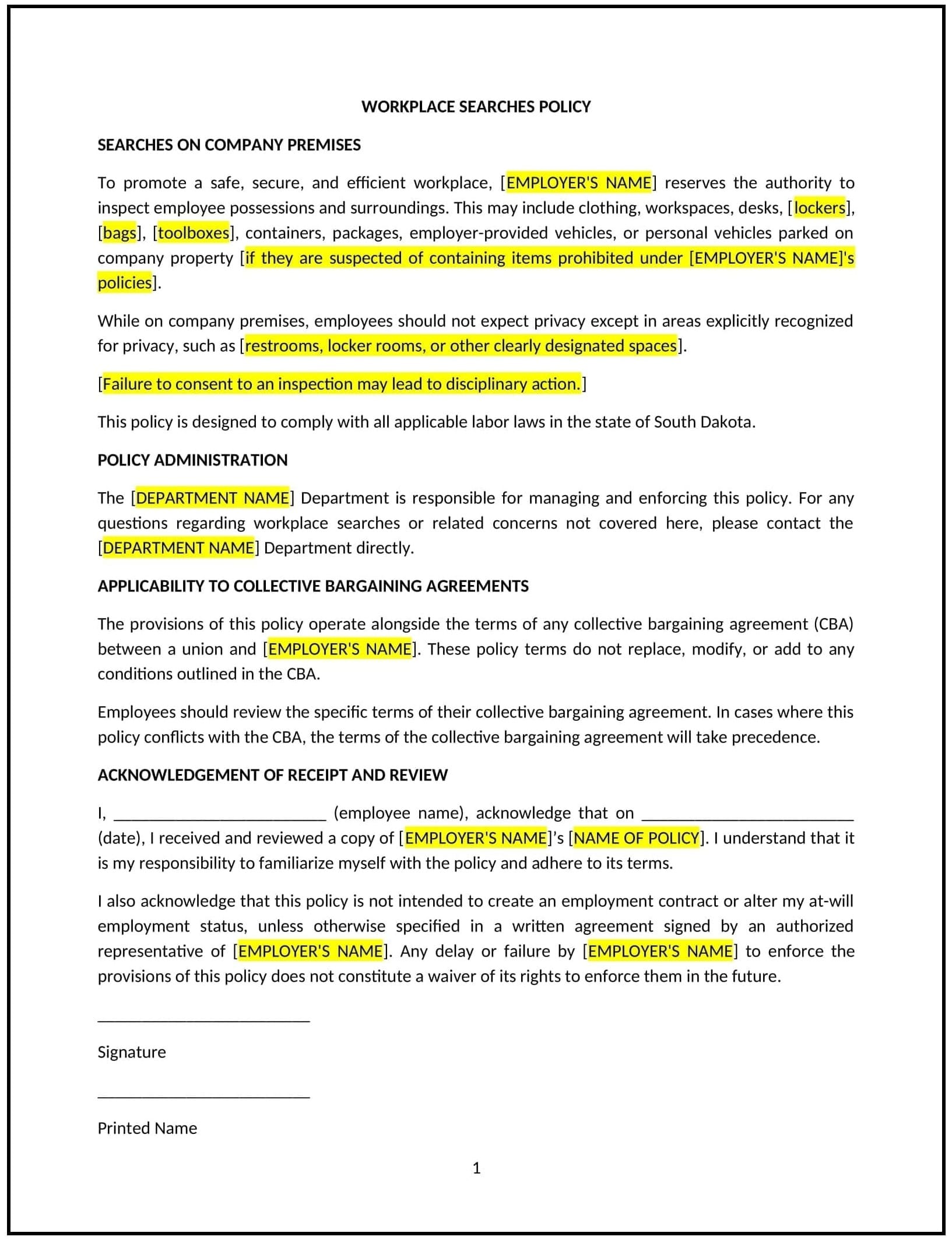Workplace searches policy (South Dakota): Free template
Got contracts to review? While you're here for policies, let Cobrief make contract review effortless—start your free review now.

Customize this template for free
Workplace searches policy (South Dakota)
This workplace searches policy is designed to help South Dakota businesses establish guidelines for conducting searches of employees, their belongings, or workspaces. It outlines procedures for ensuring security, protecting privacy, and maintaining a respectful work environment.
By adopting this policy, businesses can enhance workplace security, reduce risks, and align with general best practices for employee privacy and safety.
How to use this workplace searches policy (South Dakota)
- Define scope: Specify what may be subject to searches, such as lockers, desks, vehicles, or personal belongings.
- Establish procedures: Provide guidelines for conducting searches, including who is authorized to perform them and under what circumstances.
- Address privacy concerns: Outline measures to protect employee privacy, such as conducting searches discreetly and with minimal disruption.
- Communicate consequences: Explain the consequences of refusing a search or being found in possession of prohibited items.
- Train managers: Educate supervisors on conducting searches in a fair, consistent, and respectful manner.
- Review and update: Assess the policy annually to ensure it aligns with evolving workplace needs and legal standards.
Benefits of using this workplace searches policy (South Dakota)
This policy offers several advantages for South Dakota businesses:
- Enhances workplace security: Helps prevent theft, possession of prohibited items, or other security risks.
- Reduces risks: Provides a framework for addressing potential threats or violations in the workplace.
- Aligns with best practices: Demonstrates a commitment to maintaining a safe and secure work environment.
- Protects privacy: Establishes clear guidelines to ensure searches are conducted respectfully and with minimal intrusion.
- Builds trust: Shows employees that the business prioritizes their safety while respecting their rights.
Tips for using this workplace searches policy (South Dakota)
- Communicate the policy: Share the policy with employees and include it in the employee handbook.
- Provide training: Educate managers on conducting searches fairly, consistently, and respectfully.
- Monitor compliance: Regularly review search procedures to ensure adherence to the policy.
- Address issues promptly: Take corrective action if searches are mishandled or employee rights are violated.
- Update regularly: Review the policy annually to ensure it remains relevant and effective.